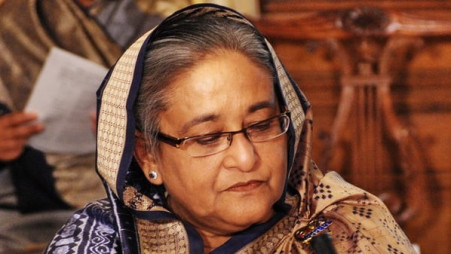'Accountability absolutely the key': Turk presents UN report on Bangladesh uprising to member states
"We believe that former government officials, members of the security and intelligence and associates of former ruling party had committed organized and systematic human rights violations," he said

Highlights:
- Turk stresses accountability for 2024 Bangladesh protest abuses
- Calls for justice and human rights reforms in Bangladesh
- Highlights evidence of political leadership's role in suppressing protests
- Recalls meeting victims of mass uprising in Bangladesh
UN High Commissioner for Human Rights Volker Turk presented a fact-finding report in Geneva today (5 March), detailing human rights violations and abuses during the July and August 2024 protests in Bangladesh.
Ensuring accountability for the rights violations is absolutely the key, the UN rights chief said during dialogue with member states and civil society on the findings and recommendations, with a view to promoting accountability, justice, and human rights reforms in Bangladesh.
The event was broadcast live from Geneva on the UN's YouTube channel at 6pm Bangladesh time.
The interim government of Bangladesh and civil society representatives from Bangladesh also participated in the event.
During the presentation, Turk expressed his gratitude to the survivors, victims, their families, medical professionals, experts, national and international civil society organisations that were a part of this [the revolution].
"The key findings are that we have reassembled grounds to believe and that is in the report issued on 12 February. We believe that former government officials, members of the security and intelligence and associates of former ruling party had committed organized and systematic human rights violations," he said.
"And indeed, we know there was knowledge, coordination and direction of former political leadership of suppressing protests," he added.
The UN high commissioner further said, "I had a chance to meet a number of victims at one of the hospitals in Bangladesh and could see how many people, particularly young people and children were affected when I visited Bangladesh in November."
Referring to his first telephone conversation with Chief Adviser Prof Muhammad Yunus, Turk said CA Yunus told him human rights is at the centre of the reforms and transition. "Of course this is hard work, no doubt about that. This is not easy."
The UN human rights chief said that is the right spirit, and they all need to grasp the opportunity and support the opportunity towards transition.
Meanwhile, responding to a question, Law Adviser Asif Nazrul, said there have been some incidents of political violence against the "torturers, hooligans of the Awami League regime" who oppressed and tortured people for many years.
He said there were some incidents where people who were deeply involved with the AL regime were attacked. "We strongly condemned that."
The adviser, however, said most of them belong to the Muslim community, and very few people belong to the minority groups.
In his concluding remarks, Turk said it is the fact that the interim government fully cooperated with them when they deployed their team very quickly at the request of the government. "We will continue to find ways to keep the Human Rights Council informed," he added.
"It will be crucial to ensure due process in criminal cases and investigate revenge violence, including against minorities," Turk said, while sharing a global update at the 58th session of the Human Rights Council in Geneva recently.
Turk said Bangladesh last year experienced a paroxysm of violence as the government of the time "brutally suppressed" a student movement that carried human rights as its torch.
"The country is now charting a new future," he said, adding that their recent independent fact-finding report on the grave human rights violations that took place is an "important contribution" to this journey.
Yesterday, Volker Turk hoped that their recent independent fact-finding report will support truth-telling, accountability, reparations, healing and reform in Bangladesh.
Turk said Bangladesh last year experienced a paroxysm of violence as the government of the time "brutally suppressed" a student movement that carried human rights as its torch.
UN Resident Coordinator in Dhaka Gwyn Lewis on Sunday informed Chief Adviser Dr Muhammad Yunus that Türk will brief the member states about its findings tomorrow during the 55th session of the Human Rights Council.
Yunus stressed documenting all "atrocities" committed during the regime of ousted prime minister Sheikh Hasina.



 Keep updated, follow The Business Standard's Google news channel
Keep updated, follow The Business Standard's Google news channel


















